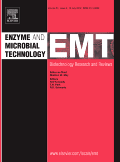
Metabolic Engineering Communications
metrics 2024
Fostering collaboration in the realm of metabolic engineering.
Introduction
Metabolic Engineering Communications is a preeminent academic journal dedicated to advancing the field of metabolic engineering, publishing high-quality research that integrates biomedical engineering with metabolic processes. Launched in 2014 by Elsevier, this Open Access journal ensures that cutting-edge discoveries are accessible to a global audience, fostering collaboration and innovation across disciplines. With a notable impact factor and ranking in the Q1 category for both Biomedical Engineering and Endocrinology, Diabetes, and Metabolism, it stands as a pivotal resource for researchers, professionals, and students seeking to enhance their understanding of metabolic pathways and their implications in health and disease. The journal's mission is to disseminate transformative research that sparks discussion and stimulates further exploration in this critical area of study. With its commitment to rigorous peer review and high visibility, Metabolic Engineering Communications is an essential platform for those at the forefront of metabolic research.
Metrics 2024
 1.16
1.16 3.70
3.70 -
- 38
38Metrics History
Rank 2024
Scopus
IF (Web Of Science)
JCI (Web Of Science)
Quartile History
Similar Journals

Synthetic Biology
Unlocking the Potential of Synthetic Biological SystemsSynthetic Biology, published by Oxford University Press, is a leading open-access journal that has gained recognition since its inception, becoming a pivotal platform in the fields of Agricultural and Biological Sciences, Bioengineering, Biomaterials, Biomedical Engineering, and Biotechnology. With an ISSN of 2397-7000 and consistent contributions from innovative researchers, the journal has established itself as a Q1 journal in Agricultural and Biological Sciences and ranks notably across various engineering disciplines, making it an essential resource for cutting-edge research and interdisciplinary collaboration. Since becoming fully open access in 2016, it has broadened its reach, allowing easy access to groundbreaking findings that drive advancements in synthetic biology and its applications. The journal's commitment to high-quality, peer-reviewed content serves to inspire researchers, professionals, and students alike, fostering a rich academic community dedicated to exploring the complexities of biological systems and their synthetic counterparts.

PROCESS BIOCHEMISTRY
Fostering collaboration in the realm of biochemical sciences.PROCESS BIOCHEMISTRY is a premier journal published by Elsevier Science Ltd, dedicated to advancing the field of biochemistry, microbiology, and bioengineering. With an ISSN of 1359-5113 and an E-ISSN of 1873-3298, this renowned journal is recognized for its impactful contributions, as demonstrated by its Q2 ranking in Applied Microbiology and Biotechnology, Biochemistry, and Bioengineering categories as of 2023. Covering a wide array of topics since its inception in 1950, PROCESS BIOCHEMISTRY serves as a crucial platform for researchers and professionals to disseminate innovative findings and develop new insights in enzyme technology, metabolic pathways, and bioreactor design. Although the journal operates under a non-open access policy, it remains vital for those engaged in cutting-edge biochemical research and development. Located in the United Kingdom, it continues to facilitate scientific discourse and foster collaboration among industry experts and academic scholars worldwide.

ELECTRONIC JOURNAL OF BIOTECHNOLOGY
Connecting Discovery with Practical Application in BiotechnologyThe Electronic Journal of Biotechnology is a premier Open Access journal published by Pontificia Universidad Catolica de Valparaiso, Chile, dedicated to advancing the fields of applied microbiology and biotechnology. With its inception in 1998 and an unwavering commitment to sharing knowledge, the journal has garnered a respectable ranking within the Q3 quartile for both its biotechnology and applied microbiology categories as of 2023, reflecting its significance in the academic community. Researchers and professionals will find its editorial rigor complemented by a robust platform for disseminating innovative findings, fostering collaboration, and driving forward biotechnology discussions. Given its inclusive approach, having transitioned to Open Access in 2014, the journal ensures that research is accessible to a global audience, making it a valuable resource for students, academics, and industry practitioners alike. Through the publication of original research, reviews, and critical insights, the Electronic Journal of Biotechnology aims to bridge the gap between scientific discovery and practical application, ultimately contributing to advancements in health, agriculture, and environmental sustainability.

METABOLIC ENGINEERING
Advancing the Frontiers of Metabolic Pathway EngineeringMETABOLIC ENGINEERING, published by Academic Press Inc. Elsevier Science, is a renowned journal in the fields of Applied Microbiology, Biotechnology, and Bioengineering. With an impressive impact factor and ranking in the top quartile (Q1) across its specialized categories for 2023, this journal facilitates the dissemination of cutting-edge research focused on metabolic pathways and engineering methods that optimize biological systems for various applications. Since its inception in 1999, it has established itself as a critical resource for academics and industry professionals seeking innovative solutions to complex biosynthetic challenges. The journal invites original research, reviews, and technical notes that advance the understanding and utilization of metabolic processes; thus, it plays a pivotal role in bridging laboratory discoveries with practical applications. Although the journal does not offer open access, its high visibility and rigorous peer-review process ensure that it remains a vital source of knowledge and inspiration for researchers and students alike.

ENZYME AND MICROBIAL TECHNOLOGY
Transforming Science Through Enzymatic and Microbial InsightsENZYME AND MICROBIAL TECHNOLOGY, a premier journal published by Elsevier Science Inc, serves as a pivotal platform for researchers and professionals dedicated to exploring the dynamic intersections of microbiology, biochemistry, and bioengineering. With a rich publication history dating back to 1979 and converging until 2024, this journal has established itself within the Q2 quartile rankings across multiple categories, including Applied Microbiology and Biotechnology, Biochemistry, Bioengineering, and Biotechnology, highlighting its influential role in advancing scientific discourse. It holds impressive Scopus rankings, where it is recognized in the 79th percentile for Applied Microbiology and Biotechnology and ranks favorably in related fields, making it a valuable resource for academic and industrial researchers looking to stay abreast of the latest developments. Although it does not currently offer Open Access options, ENZYME AND MICROBIAL TECHNOLOGY remains an essential read for anyone invested in the biotechnological applications of enzymes and microorganisms.

BIOLOGICAL CHEMISTRY
Unveiling the Secrets of Life Through Chemical ResearchBIOLOGICAL CHEMISTRY, published by WALTER DE GRUYTER GMBH, is a premier journal based in Germany focusing on the ever-evolving fields of Biochemistry, Clinical Biochemistry, and Molecular Biology. With a robust reputation reflected in its top quartile rankings (Q1) within both Biochemistry and Clinical Biochemistry categories, and a commendable Q2 ranking in Molecular Biology for 2023, this journal stands as a vital resource for researchers, professionals, and students alike. The journal spans a rich history dating back to 1881 and embraces contemporary scientific discourse, ensuring accessibility to critical findings and advances that shape the biological sciences. Although it is not an open-access journal, its impactful contributions and relevant insights continue to serve the academic community. With its ISSN 1431-6730 and E-ISSN 1437-4315, BIOLOGICAL CHEMISTRY remains committed to fostering a deeper understanding of chemical processes in biological systems, driving innovation and research excellence into the future.

Annual Review of Plant Biology
Exploring the Frontiers of Plant ScienceThe Annual Review of Plant Biology, published by Annual Reviews, stands as a premier academic journal dedicated to the comprehensive coverage of significant developments in the field of plant biology. With an impactful presence in the United States and a stellar reputation reflected in its Q1 rankings across multiple categories including Cell Biology, Molecular Biology, Physiology, and Plant Science, this journal consistently ranks among the top within its domain. The journal is particularly esteemed for its synthesis of the latest research findings, making it an invaluable resource for researchers, professionals, and students seeking in-depth insights and advancements in plant biology. Though it does not offer open access, the Annual Review of Plant Biology is essential for those committed to exploring the intricate mechanisms underlying plant function and development, with coverage spanning from 1996 to 2024. As the field continues to evolve, this journal will undoubtedly remain at the forefront, driving innovation and fostering a deeper understanding of plant sciences.

BIOTECHNOLOGY PROGRESS
Shaping the Future of Biotechnological DiscoveryBIOTECHNOLOGY PROGRESS, a prominent journal published by Wiley, stands at the forefront of the biotechnology field, delivering cutting-edge research and emerging trends since its inception in 1985. With an ISSN of 8756-7938 and an E-ISSN of 1520-6033, this journal has carved out a significant niche within the academic community, reflected in its Q2 ranking within the Biotechnology category for 2023. Maintaining a strong presence in the Scopus database, it ranks #111 out of 311 in the categories of Biochemistry, Genetics, and Molecular Biology, demonstrating its commitment to quality and significance in the field. Although it does not offer open access, it remains accessible through various institutional subscriptions, ensuring that vital biological and biotechnological discoveries reach a broad audience, including researchers, professionals, and students. Given its rigorous peer-review process and a focus on innovative methodologies, BIOTECHNOLOGY PROGRESS is an indispensable resource for anyone looking to stay informed about the latest advancements and applications in biotechnology.

BIOPROCESS AND BIOSYSTEMS ENGINEERING
Transforming Research into Real-World ApplicationsBIOPROCESS AND BIOSYSTEMS ENGINEERING is a prestigious journal published by Springer, dedicated to advancing the field of bioengineering and biotechnology. Established in 1996, this influential journal provides a platform for disseminating high-quality research that covers a wide spectrum of topics related to bioprocessing, biosystems, and their applications in medicine and environmental engineering. With an impressive impact factor and ranking in the top quartile (Q2) across bioengineering, biotechnology, and miscellaneous medical fields, BIOPROCESS AND BIOSYSTEMS ENGINEERING stands out as a critical resource for researchers, professionals, and students. The journal is indexed in Scopus, reflecting its significant contribution to the scientific community, particularly with its robust percentile rankings (77th in Biotechnology and 70th in Bioengineering). Available in both print and electronic formats, this journal ensures accessible research for those pushing the boundaries of knowledge in bioprocessing and biosystems. As it continues to evolve, BIOPROCESS AND BIOSYSTEMS ENGINEERING encourages submissions that contribute to innovative research practices and applications, thereby fostering academic collaboration and advancement in this dynamic field.

Cell Metabolism
Transforming metabolic research into impactful solutions.Cell Metabolism is an esteemed journal published by CELL PRESS, dedicated to advancing the understanding of metabolic processes within cell biology, molecular biology, and physiology. With an impactful 2023 ranking placing it at Q1 in multiple categories and earning a distinguished position in the top percentiles of its respective fields, this journal serves as an essential resource for researchers, professionals, and students who are investigating the dynamic roles of metabolism in health and disease. Its rigorous peer-review process ensures high-quality publications that reflect the latest advancements in metabolic research. Since its inception in 2005, Cell Metabolism has become a pivotal platform for disseminating critical findings that not only expand scientific knowledge but also foster innovative approaches to tackle metabolic disorders. By prioritizing accessibility and scholarly excellence without the Open Access model, it remains a premier source for cutting-edge research insights.